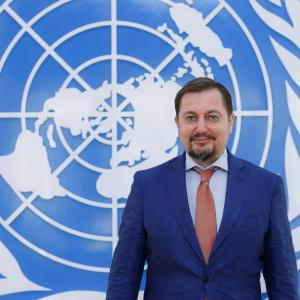The UN Resident Coordinator Office
The United Nations Resident Coordinator Office supports the work of the UN Resident Coordinator. The UN Resident Coordinator leads the UN country team in consultations with the Government to define and agree on the UN strategic response to the Government’s development priorities. This response is captured in the United Nations Sustainable Development Cooperation Frameworks (UNSDCF).
The Cooperation Framework reaffirms the shared vision and partnership between the Government of Turkmenistan and the UN system. It expresses collective aspirations for a prosperous, inclusive, and resilient Turkmenistan. It envisions that the country, by 2025, will make a significant progress in achieving its national development goals aligned with the SDGs.
The UN Resident Coordinator Office has five core functions:
- Strategic Planning
- Economics
- Partnerships and development finance
- Data and results management and reporting
- Communications and advocacy
The UN Resident Coordinator in Turkmenistan
The UN Resident Coordinator for Turkmenistan is Dmitry Shlapachenko.
Mr. Shlapachenko brings more than 25 years of experience in diplomacy, international cooperation, political and socio-economic affairs, development coordination, peacebuilding, and strategic planning to the position. At the United Nations, he was most recently Team Leader for the Horn of Africa and the United Nations Integrated Transition Assistance Mission in Sudan (UNITAMS) at Headquarters in New York with the Department of Political and Peacebuilding Affairs (DPPA) and the Department of Peace Operations (DPO). He also held leadership positions in Iraq, Kosovo, New York, Somalia, Tajikistan, and Vienna.
Prior to joining the Organization, Mr. Shlapachenko worked with the US Peace Corps and the Organization for Security and Co-operation in Europe (OSCE). He was also a writer on international affairs in his country.
He holds a bachelor and a master’s degree in international journalism as well as a doctorate in international relations from the University of Kyiv, Ukraine, a master’s degree in political science from the Central European University in Budapest, Hungary, and a master’s degree in international relations from the London School of Economics in the UK. He also completed a fellowship in international journalism and public policy at Duke University in North Carolina, USA.


